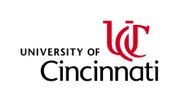A Member of the Rieveschl Laboratories for Mass Spectrometry
RAMM Software Update (v2) now available
RoboOligo Software now available
Learn more about the National Academies Consensus study on Sequencing the Epitranscriptome
Selected Recent Publications
Manasses Jora, Daniel Corcoran, Gwenn G. Parungao, Peter A. Lobue, Luiz F. L. Oliveira, George Stan, Balasubrahmanyam Addepalli, and Patrick A. Limbach “Higher-Energy Collisional Dissociation Mass Spectral Networks for the Rapid, Semi-automated Characterization of Known and Unknown Ribonucleoside Modifications” Analytical Chemistry (2022) 94(40):13958-13967. doi: 10.1021/acs.analchem.2c03172. PMID: 36174068.
"Chemical Amination/Imination of Carbonothiolated Nucleosides During RNA Hydrolysis” Jora M, Borland K, Abernathy S, Zhao R, Kelley M, Kellner S, Addepalli B, Limbach PA. Angew Chem Int Ed Engl. (2021) 60 3961-3966. DOI: 10.1002/anie.202010793. PMID: 33125801
“Oligonucleotide Analysis by Hydrophilic Interaction Liquid Chromatography-Mass Spectrometry in the Absence of Ion-Pair Reagents” P.A. Lobue, M. Jora, B. Addepalli, P.A. Limbach, Journal of Chromatography A (2019) DOI: 10.1016/j.chroma.2019.02.016. PMID: 30772056.
“Transfer RNA Modification Profiles and Codon Decoding Strategies in Methanocaldococcus jannaschii” N. Yu, M. Jora, B. Solivio, P. Thakur, C.G. Acevedo-Rocha, L. Randau, V. de Crécy-Lagard, B. Addepalli, P.A. Limbach, Journal of Bacteriology (2019) 201 e00690-18. DOI: 10.1128/JB.00690-18 PMID: 30745370.
“RNAModMapper: RNA modification mapping software for analysis of mass spectrometry data”, N Yu, C Wetzel, X Cao, PA Limbach, Analytical Chemistry (2017) doi: 10.1021/acs.analchem.7b01780 PMID: 28942636
June 2 - 6, 2024
Future ASMS conference in Anaheim, CA
Upcoming Events
RNA Modifications - MS
Modified RNA Sequencing by Mass Spectrometry
A long-term goal of the Limbach Group is to effectively utilize mass spectrometry-based RNA identification and quantification in applications requiring the selective detection of important RNA biomarkers for disease. While such approaches are common for other biomolecules (think proteomics or metabolomics), mass spectrometry methods for RNA identification have been hindered by a lack of analytical and bioinformatic tools. Our research program in Modified RNA Sequencing by Mass Spectrometry, therefore, has been organized to establish simple assays for RNA identification (the Signature Digestion Approach) and detection of modified RNAs (via the CARD approach and de novo RNA sequencing). This research area benefits from the diverse backgrounds of our undergraduates, graduate students and post-docs - researchers involved in this project have interests ranging from analytical chemistry (such as LC-MS) to biochemistry/molecular biology through bioinformatics.
De Novo RNA Sequencing
Recently we found that a combination of multiple RNase digestion of total tRNAs combined with targeted MS/MS efforts enable the complete reconstruction of tRNA modification patterns from total tRNAs isolated from bacteria. Ongoing efforts are focused on improving the quality of MS/MS data obtained to improve sequence placement of modified nucleosides found in these mixtures.
Comparative RNA Sequencing
Comparative sequencing can be used for the sequencing of unknown tRNAs from host organisms whose genomes are known, for sequencing entirely unknown tRNAs if a suitable reference set of tRNAs exist, and is an ideal method to examine the specific effects of gene knockouts or knockdowns on tRNA sequence and modification.
Bioinformatic and Software Tools for RNA Sequencing and Identification
A long-term goal of the Limbach Group is to effectively utilize mass spectrometry-based RNA identification and quantification in applications requiring the selective detection of important RNA biomarkers for disease. In an optimized approach, RNA samples would be directly analyzed by mass spectrometry - identification of key RNA biomarkers would occur by detecting specific signatures (SDPs) - and data analysis would be simplified by software tools that process the mass spectrometry data into a format that is user-friendly. Our first development was RNAccess, which is a database of known or predicted SDPs. This database is accessible to any research group, and is continuallly updated as additional RNA sequences are determined. Our lab has also developed several software programs for the processing of RNA mass spectrometry data. MO Predict provides capabilities similar to those found from the web-based Mongo Oligo program developed originally in the McCloskey Laboratory by Jef Rozenski, Steve Pomerants and Pat Limbach. We expect to soon make available MO RNase Mapping, which allows for LC-MS and LC-MS/MS data to be annotated against any user-input RNA sequence (or collection of sequences). The most recent program, jointly developed by Dr. Kirk Gaston in our lab with Paul Sample from the Alfonzo lab, is RoboOligo. This program facilitates de novo sequence interpretation of posttranscriptionally modified RNAs. Details on downloading these programs or accessing our SDP database are found here.
Signature Digestion Product (SDP) Identification of RNAs
The use of Signature Digestion Products (SDPs) as a means of detecting individual RNAs from a sample containing one or more RNAs is based on the selective enzymatic digestion of an individual RNA by an RNase (e.g., RNase T1), which generates a number of specific endonuclease digestion products. A comparison of an organism's complete complement of RNA RNase digestion products yields a set of unique or "signature" digestion product(s) that ultimately enable the detection of individual RNAs from a total RNA pool. We have also shown that this SDP approach can be used in assays for the quantitation of specific tRNAs from a mixture containing all the cellular tRNAs from any one organism.
